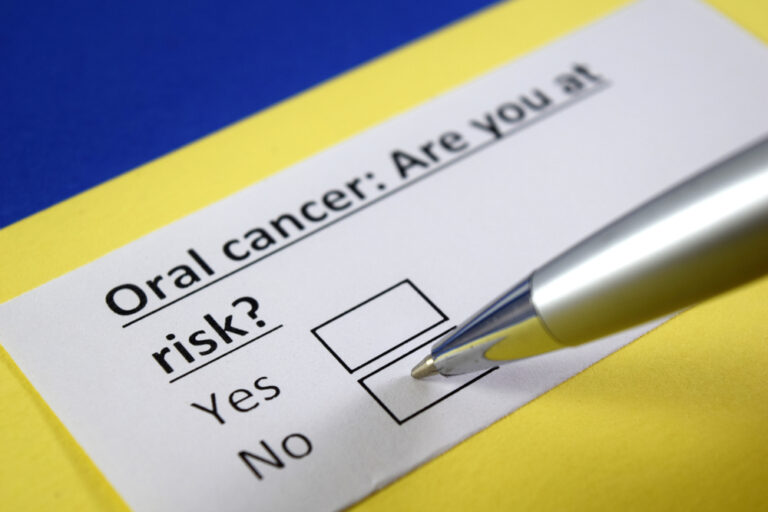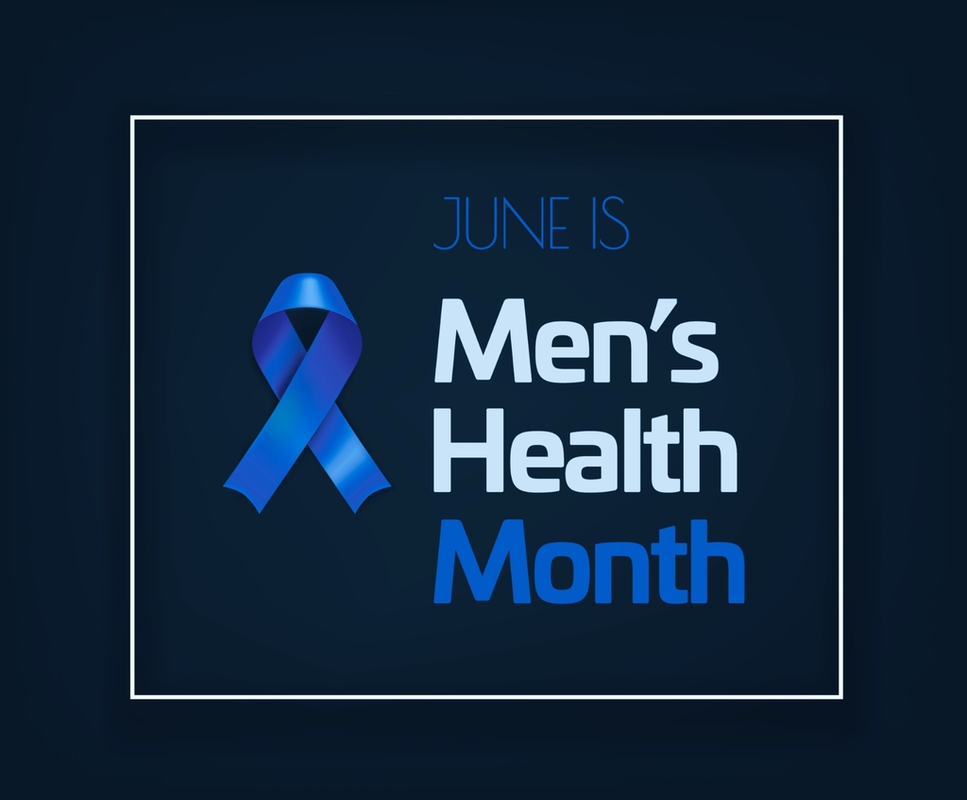Oral Cancer

For the month of April, Suntree Internal Medicine will do our part to help spread awareness about oral cancer. Oral cancer is cancer that develops in the tissues of the mouth or throat. More specifically, it includes cancer of the lips, tongue, inner lining of the cheek, gums, floor of the mouth, and hard and soft palate. The American Cancer Society estimates that 54,010 people will have oral cancer. It is estimated that 10,850 people will die from it.
Oral cancer is typically found in people over 40 years old. There are several risk factors for developing oral cancer. Tobacco use is one of the biggest factors, which includes smoking cigarettes, cigars, pipes, and chewing tobacco. Alcohol is another big factor, especially if used heavily. If both tobacco and alcohol are used, your chances are even higher. Some risk factors you can control are sun exposure and HPV. Overexposure to the sun can cause lip cancer and human papillomavirus (HPV) can infect the mouth and throat, and cause cancer. Risk factors you cannot control are being male and your age. Being male makes it more than two times more likely to develop cancer than females and it is common for people over 40 to be diagnosed.
Early detection is important for surviving oral cancer. Without dental and medical preventative care, early detection is not often possible. Dentists are usually the first to notice any signs of oral cancer. Routine dental exams will help your dentist determine if there is anything abnormal as they check your lips and inside of your mouth. If you do not see your dentist and doctor regularly, you may seek help when symptoms do not go away or become worse.
The symptoms of oral cancer:
- Pain or difficulty chewing or swallowing
- Unusual bleeding from your mouth
- Mass or growth in your mouth
- Sore on your lip or mouth
- White or red patch in the mouth
- Tongue pain
- Numbness in your tongue, other parts of the mouth, or neck
- Loose teeth
- Jaw pain or stiffness
- Persistent sore throat
- Lump in your neck
- Earache that will not go away
- Dramatic weight loss
If anything appears to be abnormal, a biopsy and possibly additional testing will be required by either your dentist or doctor.
If you are diagnosed with oral cancer and it is in the early stages, it will be treated with surgery or radiation. If the cancer is not caught early, your doctor may use a combination of treatments. Your health, where the cancer is, size and type of tumor, and whether it has spread are factors your doctor will consider when deciding on treatment.
Oral cancer is the sixth most deadly cancer. You may not be able to fully prevent oral cancer, but eating a healthy diet, not using tobacco products, or drinking alcohol excessively, and limiting your exposure to the sun will greatly help reduce your chances. Become familiar with the symptoms and contact Suntree Internal Medicine to schedule your next preventative care appointment by calling us at 321-259-9500 or booking here: https://suntreeinternalmedicine.com/book-appointment.html.







